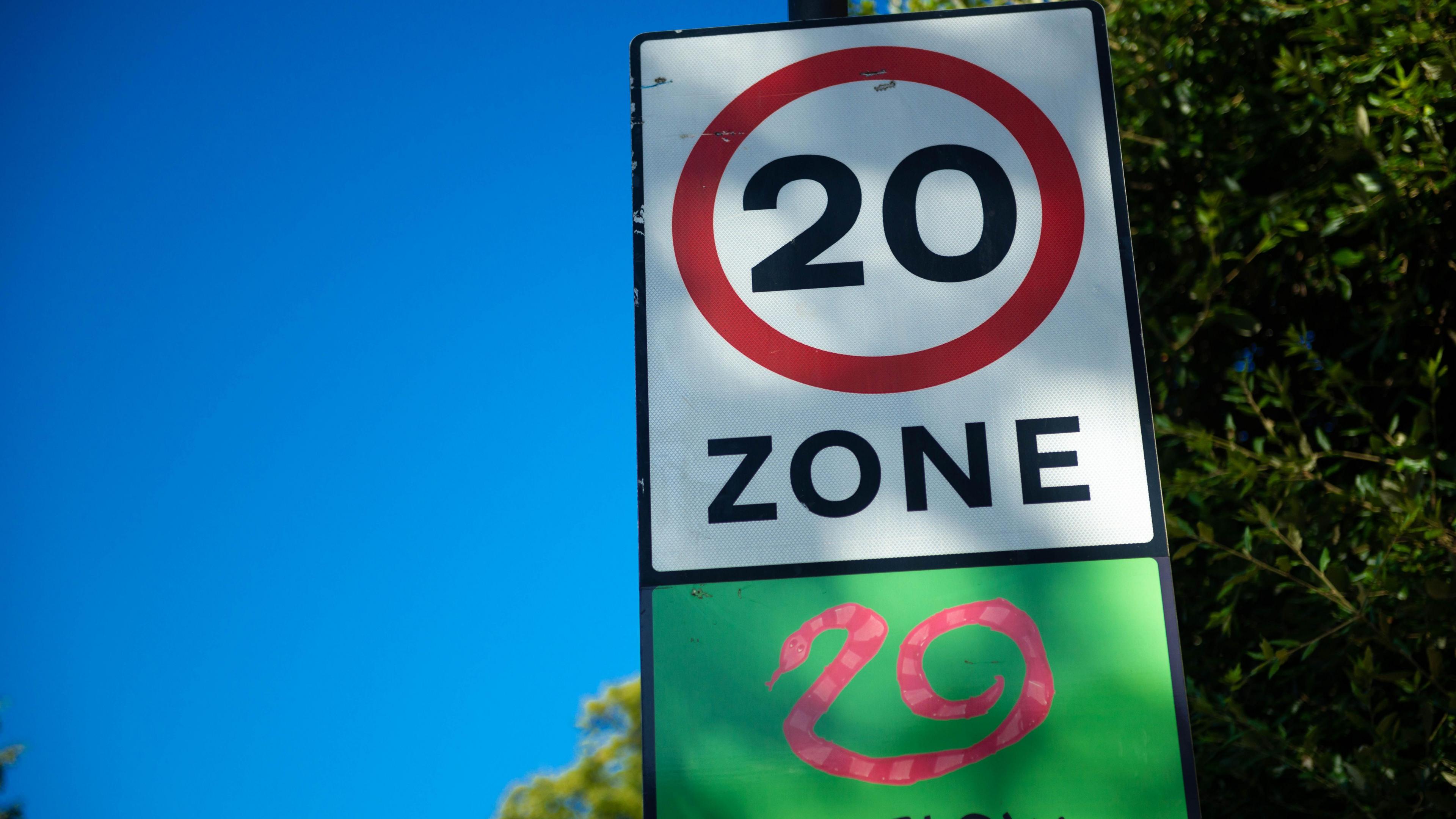Speed limit of 20mph 'reduced crashes and deaths'

20mph zones have not been universally welcomed
- Published
The introduction of 20mph limits on London's roads reduced the number of deaths and injuries, according to a report commissioned by Transport for London (TfL).
Across all 157 schemes on borough roads, there was a 34% decrease in fatal or serious casualties - although other safety features in the control group indicated it would have fallen by 15% anyway.
Walking and cycling commissioner Will Norman said the new analysis was "compelling" and "shows clearly that lowering speeds is saving lives."
But Callum McGoldrick, from the TaxPayers' Alliance, said blanket 20mph zones "risk punishing responsible drivers without delivering clear value for money."
The 20mph speed limit schemes were implemented between 1989 and 2013.
The aim of the report, which analyses their introduction over the 24 years, was to better understand their impact over a longer time period, TfL said.
The report, the first of its scale in London, TfL added, also examined the three-year periods surrounding the implementation of each 20mph scheme.
'Clog up roads'
In London, 5% of roads are operated by TfL with the rest managed by London's 32 boroughs and the City of London.
The 20mph speed limit was introduced across the central London Congestion Charging zone in March 2020 although more than half of boroughs now implement the same policy, TfL said.
Last year, the Licensed Taxi Drivers' Association branded the widening of 20mph zones "devastating", external to black cab drivers.
The authors of the latest report, external recognised the implementation of 20mph schemes "was not the sole cause of improved road safety in this time".
The analysis also found:
A 35% reduction of all collisions - from 2,560 to 1,715 however the control group showed a drop of 12% would have occurred anyway
Deaths fell from 15 to nine
The number of children killed dropped from four to one
No change was observed in motorcycle-related fatalities
BBC London's Transport Correspondent Tom Edwards said the context and bigger picture here was London would be getting more 20mph speed limits.
"Already about half of London's roads are 20mph and City Hall are preparing the ground for more on the basis that it saves lives.
"That fits with the mayor's Vision Zero policy to get road casualties to zero."
He added that while there is a lot of support for 20mph limits, particularly in residential areas, those against them think they reduce productivity and are inconvenient - and the issue has become political elsewhere.
London is world's slowest city for drivers - study
- Published10 January 2024
London's 20mph limits 'not making buses slower'
- Published24 February
New 20mph speed limit for five London boroughs
- Published31 March 2023
Mr McGoldrick, from the TaxPayers' Alliance, representents these concerns.
"Slowing down traffic across entire areas can clog up roads, delay journeys and hit productivity, especially for tradespeople and small businesses," he said.
"Rather than heavy-handed restrictions, councils and TfL should focus on targeted measures at accident blackspots, not treating every motorist like a menace."
But Mr Norman said slower speeds "not only protect the most vulnerable, they also help create safer, more welcoming streets, and are a vital part of building a safer London for everyone".
"Every death or serious injury on our roads is one too many.
"The mayor and I are proud that London is leading the way with bold, evidence-led action to reduce danger on our roads, and we will continue working to eliminate death and serious injury on the transport network as part of our vision zero goal."
Listen to the best of BBC Radio London on Sounds and follow BBC London on Facebook, external, X, external and Instagram, external. Send your story ideas to hello.bbclondon@bbc.co.uk, external